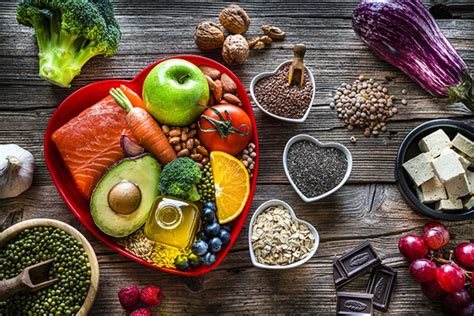Unlock peak male performance: Best diet for energy, focus & lean muscle?

Fueling Greatness: Why Diet is Your Ultimate Performance Tool
For men striving to achieve peak physical and mental performance, diet isn’t just about weight management; it’s the foundational pillar for sustained energy, unwavering focus, and robust lean muscle development. The right nutritional strategy can optimize hormone levels, enhance recovery, and provide the cellular fuel necessary to excel in all aspects of life. Moving beyond generic advice, let’s explore a tailored approach to eating that truly supports male vitality and performance.

Macronutrient Mastery: The Pillars of Power
Understanding your macronutrient needs – protein, carbohydrates, and fats – is crucial for tailoring a performance-enhancing diet. The ideal ratio can vary based on activity level and goals, but the quality of these macros remains paramount.
Protein: The Muscle Builder & Satiety Provider
- Why it’s vital: Protein is essential for muscle repair, growth, and the synthesis of enzymes and hormones. It also promotes satiety, helping to manage appetite.
- Sources: Prioritize lean meats (chicken breast, turkey, lean beef), fish (salmon, tuna), eggs, dairy (Greek yogurt, cottage cheese), and plant-based options like lentils, beans, tofu, and quinoa.
- Recommendation: Aim for 1.6-2.2 grams of protein per kilogram of body weight, distributed throughout the day.
Carbohydrates: The Energy Engine for Body and Brain
- Why it’s vital: Carbs are the body’s primary fuel source, crucial for sustained energy during workouts and for optimal brain function.
- Sources: Focus on complex carbohydrates such as whole grains (oats, brown rice, whole-wheat bread), starchy vegetables (sweet potatoes, squash), and fruits. These provide sustained energy and fiber.
- Recommendation: Adjust intake based on activity level; more active men will require more. Generally, 40-50% of total calories can come from quality carbs.
Healthy Fats: Hormonal Balance and Cognitive Function
- Why it’s vital: Healthy fats are critical for hormone production (including testosterone), nutrient absorption, cell membrane integrity, and brain health.
- Sources: Include avocados, nuts (almonds, walnuts), seeds (chia, flax, hemp), olive oil, and fatty fish.
- Recommendation: Healthy fats should comprise 20-30% of your daily caloric intake.

Micronutrient Powerhouses: Vitamins, Minerals & Beyond
While macronutrients provide the bulk of your energy, micronutrients are the unsung heroes facilitating countless bodily processes. Deficiencies can severely impact energy, focus, and physical output.
- Magnesium: Critical for muscle function, nerve transmission, energy production, and sleep quality. Found in leafy greens, nuts, seeds, and whole grains.
- Zinc: Essential for immune function, protein synthesis, and testosterone production. Abundant in oysters, red meat, poultry, beans, and nuts.
- Vitamin D: Crucial for bone health, immune function, and has been linked to testosterone levels. Primarily obtained from sun exposure, fatty fish, and fortified foods.
- B Vitamins: Play a central role in energy metabolism and nervous system function. Found in whole grains, meat, eggs, dairy, and leafy greens.
- Omega-3 Fatty Acids: Beyond being a healthy fat, they are powerful anti-inflammatories, crucial for brain health and joint recovery. Best sources are fatty fish, flaxseeds, and chia seeds.

Hydration: The Often-Overlooked Foundation
It sounds simple, but proper hydration is fundamental for every bodily function, including energy levels, cognitive performance, and nutrient transport. Dehydration, even mild, can significantly impair focus and physical endurance.
- Recommendation: Aim for at least 3-4 liters of water daily, increasing intake during exercise or hot weather. Consider adding electrolytes if sweating profusely.

Strategic Eating: Timing, Habits, and Foods to Limit
- Meal Timing: Distribute your meals and snacks throughout the day to maintain steady energy levels and support muscle protein synthesis. A pre-workout snack (carbs + protein) and a post-workout meal (protein + carbs) are highly beneficial.
- Mindful Eating: Pay attention to your body’s hunger and fullness cues. Eating slowly and without distractions can improve digestion and nutrient absorption.
- Limit Processed Foods: Minimize intake of refined sugars, trans fats, and highly processed foods. These can lead to energy crashes, inflammation, and hinder overall performance.
- Reduce Alcohol: Excessive alcohol consumption can negatively impact sleep, hormone levels, and muscle recovery.

Conclusion: Your Personalized Path to Peak Performance
Unlocking peak male performance through diet is an ongoing journey of informed choices. By prioritizing high-quality macronutrients, ensuring adequate micronutrient intake, staying well-hydrated, and adopting strategic eating habits, you can build a nutritional framework that supports relentless energy, laser-sharp focus, and robust lean muscle growth. Remember, consistency is key, and listening to your body’s unique responses will ultimately guide you to your optimal dietary blueprint.









